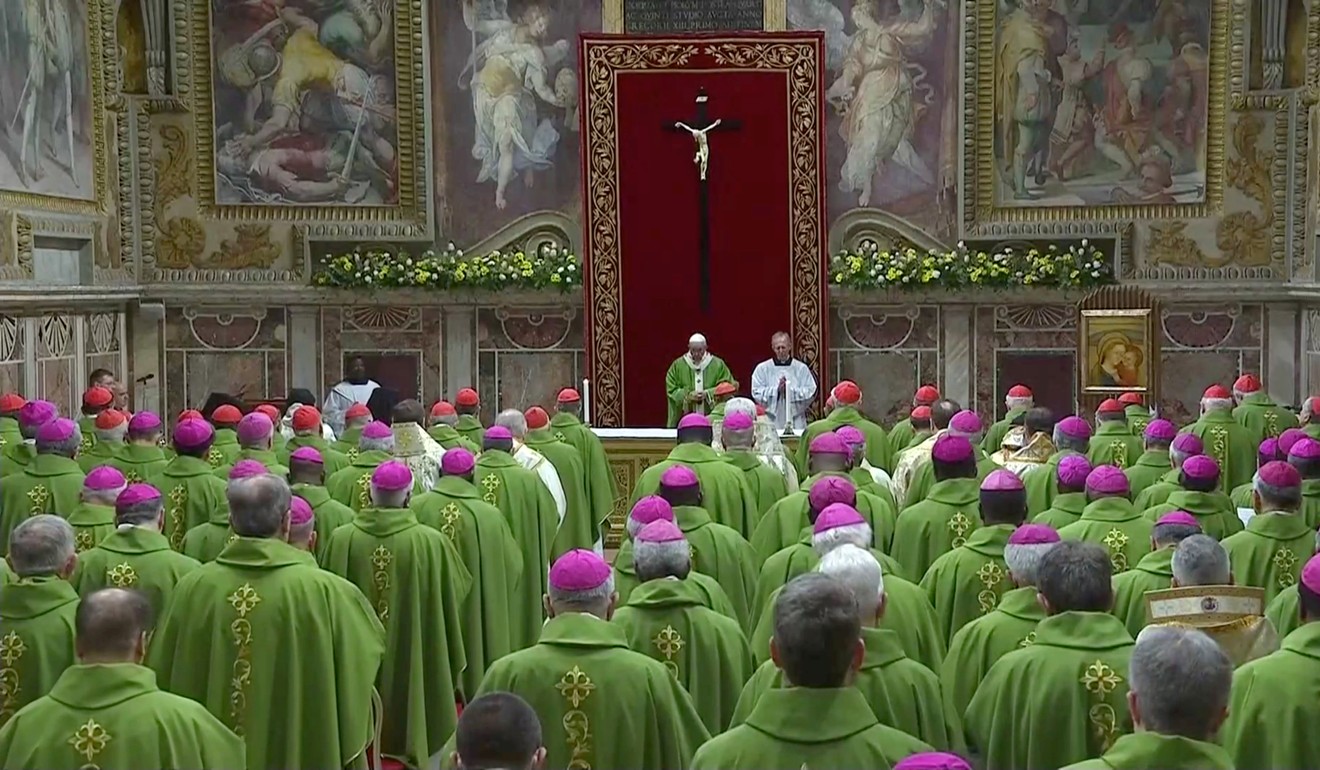
What the George Pell conviction reveals about Pope Francis and the cancer eating at the Catholic Church
- The Vatican treasurer’s conviction on child sex charges, until recently kept out of the news by a gag order, raises questions about Pope Francis’ leadership and the church’s resolve in tackling clergy sexual abuse
When I was editor of The Universe, one conversation was inscribed indelibly on my memory. The monsignor who was the paper’s religious adviser told me that there is one crime that cries to Heaven for vengeance – the abuse of children.
Pell, 77, is appealing the conviction and steadfastly maintains his innocence. But the case demonstrates that there is a cancer eating at the Catholic Church and destroying its claim to holiness.
Crying “sorry”, calling a meeting of bishops to discuss abuse, denouncing clerical perpetrators as evil and preparing a bishop handbook are not sufficient. Pope Francis needs to do more and quickly. There have been far too many cases of priests abusing children in far too many places for the Pope and the church to shrug them off as a few weeds in a harvest.
Pell is no ordinary priest or bishop. The son of a publican in Ballarat, he was quickly marked out for higher things. He was ordained at St Peter’s in Rome and earned a doctorate at Oxford University. He was a bishop at age 45, then archbishop of Melbourne and Sydney, then cardinal.
He rose higher, in spite of allegations of covering up sexual abuse. A royal commission into child sexual abuse in Australia heard that 7 per cent of Catholic priests were accused of child sex crimes between 1950 and 2010, but that the allegations were never investigated.
In keeping with his image as a tough-guy Catholic, Pell took a hard line against contraception, in vitro fertilisation, abortion, divorce and homosexuality, which he described as a “much greater health hazard than smoking”.
During a sentencing hearing, Pell’s lawyer’s descriptions of the cardinal’s offences as “plain vanilla” sex and a “fleeting” incident that deserved only a lower-end sentence were met with outrage by victims of abuse, and also rejected by the judge.
Pope Francis had promoted Pell to Rome to take charge of the Vatican’s finances, and to advise on reforming the church’s administration. The revelation that Pell’s conviction in December last year was kept out of the news by a gag order because of possible new charges raises questions about the pope’s leadership and his ability to resolve a crisis that threatens the relevance of the church, which has been losing followers.

In the end, though, the summit was long on words, but short on action: “all optics with no substance”, as one of the abuse survivors put it.
At the heart of the matter are conflicting views about the church’s role. Pope Francis sees the church as inclusive and welcoming, offering assistance and grace in the journey through life, helping those who have been battered or wounded along the way. In his view, clergy sex crimes are “abominations” and the church has failed sexual abuse victims.
But he faces fierce opposition from some leading cardinals, including Pell, who see the church as a gathering of the elite. That view of the Catholic Church has uncomfortable echoes of the time of Jesus Christ, who condemned the religious elite of his day, the Pharisees.
He described them as “whited sepulchres, which indeed appear beautiful outward, but are within full of dead men's bones, and of all uncleanness”.
Christ was attacked for spending time with despised tax collectors and sinners. In the end, the elite ganged up on him and condemned him to crucifixion, an ignominious death as a criminal.
Kevin Rafferty was editor of The Universe, then the world’s biggest selling Catholic newspaper in English

